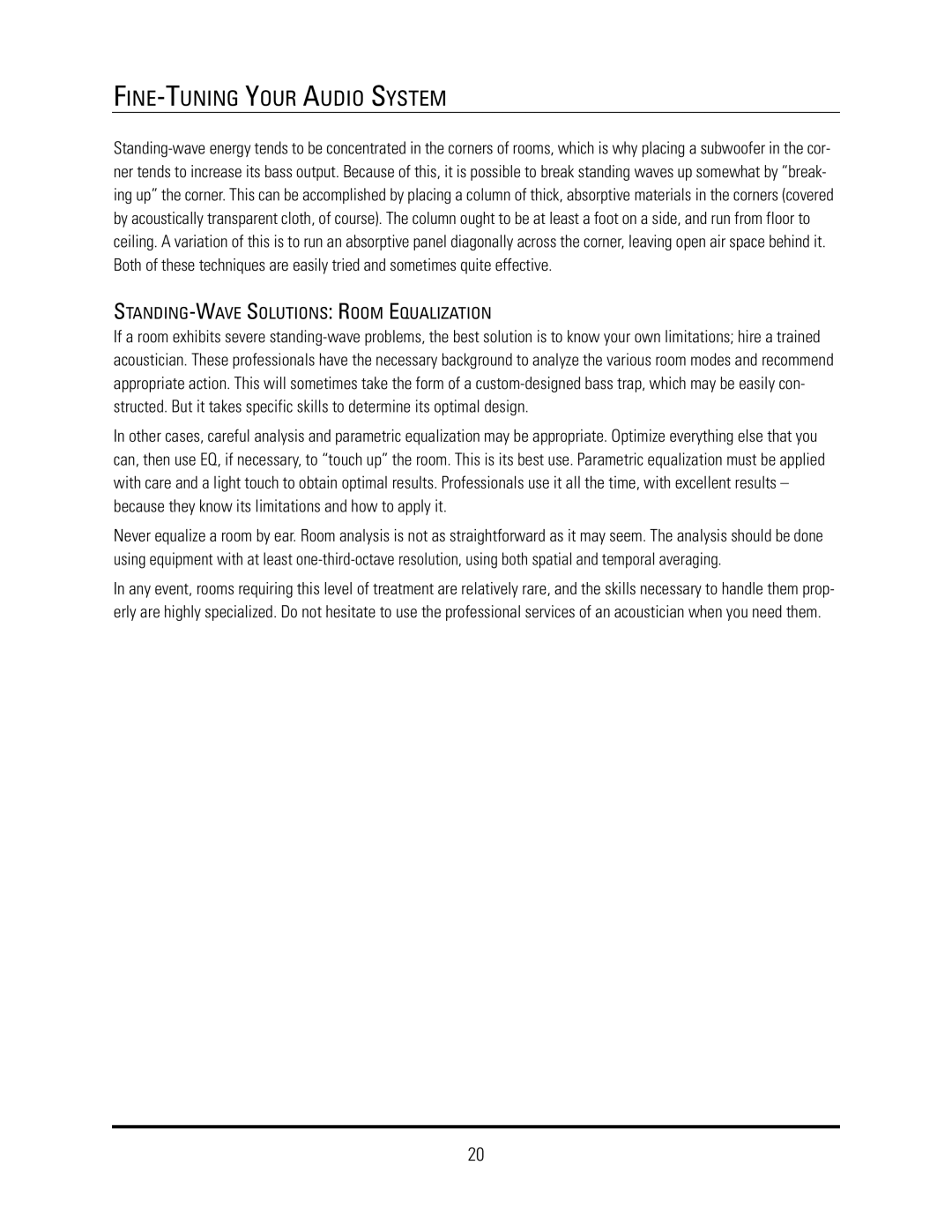FINE-TUNING YOUR AUDIO SYSTEM
Standing-wave energy tends to be concentrated in the corners of rooms, which is why placing a subwoofer in the cor- ner tends to increase its bass output. Because of this, it is possible to break standing waves up somewhat by “break- ing up” the corner. This can be accomplished by placing a column of thick, absorptive materials in the corners (covered by acoustically transparent cloth, of course). The column ought to be at least a foot on a side, and run from floor to ceiling. A variation of this is to run an absorptive panel diagonally across the corner, leaving open air space behind it. Both of these techniques are easily tried and sometimes quite effective.
STANDING-WAVE SOLUTIONS: ROOM EQUALIZATION
If a room exhibits severe standing-wave problems, the best solution is to know your own limitations; hire a trained acoustician. These professionals have the necessary background to analyze the various room modes and recommend appropriate action. This will sometimes take the form of a custom-designed bass trap, which may be easily con- structed. But it takes specific skills to determine its optimal design.
In other cases, careful analysis and parametric equalization may be appropriate. Optimize everything else that you can, then use EQ, if necessary, to “touch up” the room. This is its best use. Parametric equalization must be applied with care and a light touch to obtain optimal results. Professionals use it all the time, with excellent results – because they know its limitations and how to apply it.
Never equalize a room by ear. Room analysis is not as straightforward as it may seem. The analysis should be done using equipment with at least one-third-octave resolution, using both spatial and temporal averaging.
In any event, rooms requiring this level of treatment are relatively rare, and the skills necessary to handle them prop- erly are highly specialized. Do not hesitate to use the professional services of an acoustician when you need them.

